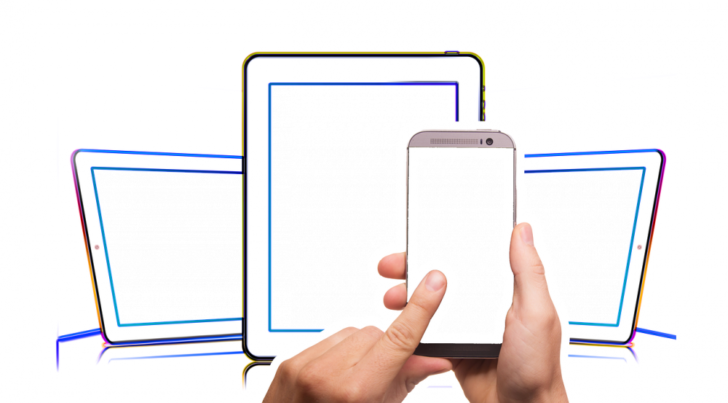Energi App: Optimizing Energy Usage for a Sustainable Future

Introduction:
In today’s digitalized world, technology plays a vital role in providing innovative solutions to various challenges. The increasing concern for sustainable living has sparked interest in energy management. With the rise in renewable energy sources and the need to reduce carbon footprints, energy apps have emerged as powerful tools that enable users to optimize energy usage, monitor consumption, and contribute to a sustainable future. In this article, we will delve into the world of energy apps, exploring their significance, historical development, and the key features they offer.
The Evolution of Energy Apps:

Over the years, energy apps have evolved significantly, enabling users to take control of their energy consumption and make informed decisions. Initially, the focus was on simple energy monitoring, providing users with insights into their energy usage. However, with advancements in technology, energy apps have become more sophisticated, offering features such as real-time data visualization, predictive analysis, and integration with smart home devices.
Historical Background:
Energy apps originated as a response to the growing concerns over environmental sustainability. In the early 2000s, as renewable energy sources gained momentum, energy companies started developing tools to monitor and manage energy usage. These early apps primarily targeted businesses and focused on utility bill management.
In the following years, as smartphones became more prevalent, energy apps expanded their reach to consumers. This marked a shift from a business-centric approach to providing personalized energy management solutions. Energy apps started offering features like personalized energy usage tracking, tips for reducing consumption, and even gamification elements to encourage energy-saving behaviors.
Key Features and Benefits:
1. Real-time Energy Monitoring:
Energy apps provide users with real-time data on their energy consumption. This enables them to identify energy-intensive activities and make informed decisions to optimize their usage. Through intuitive interfaces and visualizations, users can track their energy consumption on a daily, weekly, or monthly basis.
2. Energy Usage Insights and Analysis:
Energy apps offer detailed insights into energy usage patterns, identifying peak consumption periods and highlighting areas for improvement. By analyzing historical data, users can detect trends, set energy-saving goals, and track their progress over time.
3. Integration with Smart Home Devices:
Many energy apps integrate seamlessly with smart home devices, allowing users to control and monitor energy usage remotely. This integration enables users to automate energy-saving actions, such as adjusting thermostats based on occupancy or optimizing lighting schedules.
4. Energy Efficiency Tips:
To promote sustainable behavior, energy apps often provide users with personalized energy-saving tips. These recommendations may include adjusting thermostat settings, choosing energy-efficient appliances, or adopting renewable energy options. Some apps even gamify energy-saving actions, rewarding users for their eco-friendly choices.
5. Energy Consumption Comparison:
Energy apps allow users to compare their energy consumption with similar households or demographics. This benchmarking feature fosters competition and encourages users to strive for more sustainable energy usage.
The Path to Featured Snippets:
Structured for Optimal Visibility:
To increase the likelihood of being featured as a snippet in Google search results, this article follows a well-structured format. It begins with an engaging tag, followed by several H2 tags that break the content into distinct sections. The use of bulleted points enhances readability and enables search engines to identify key information. By adopting this structured approach, the article aims to enhance its visibility and provide users with comprehensive insights into energy apps.
Conclusion:
Energy apps have revolutionized the way we manage and optimize energy consumption. By empowering users with real-time data, personalized insights, and smart home integration, these apps are instrumental in reducing carbon footprints and promoting sustainable living. These user-friendly tools have come a long way from their humble beginnings, evolving to meet the diverse needs of tech enthusiasts and environmentalists alike. With their myriad benefits and constant innovations, energy apps are driving us towards a greener future.
FAQ
What is an energy app and how does it work?
What are the key features of energy apps?
How have energy apps evolved over time?
Flere Nyheder
It service kursus: sådan løfter du kvaliteten i din it-afdeling
Introduction: In today’s digitalized world, technology plays a vital role in providing innovative solutions to various challenges. The increasing concern for sustainable living has sparked interest in energy management. With the rise in renewab...
15 januar 2026
Brugte computere i Nordjylland: sådan får du mest for pengene
Introduction: In today’s digitalized world, technology plays a vital role in providing innovative solutions to various challenges. The increasing concern for sustainable living has sparked interest in energy management. With the rise in renewab...
02 januar 2026
Hvad koster en hjemmeside? Få et indblik
Introduction: In today’s digitalized world, technology plays a vital role in providing innovative solutions to various challenges. The increasing concern for sustainable living has sparked interest in energy management. With the rise in renewab...
11 oktober 2025
PC reparation på Bornholm: Her finder du det
Introduction: In today’s digitalized world, technology plays a vital role in providing innovative solutions to various challenges. The increasing concern for sustainable living has sparked interest in energy management. With the rise in renewab...
05 oktober 2025











